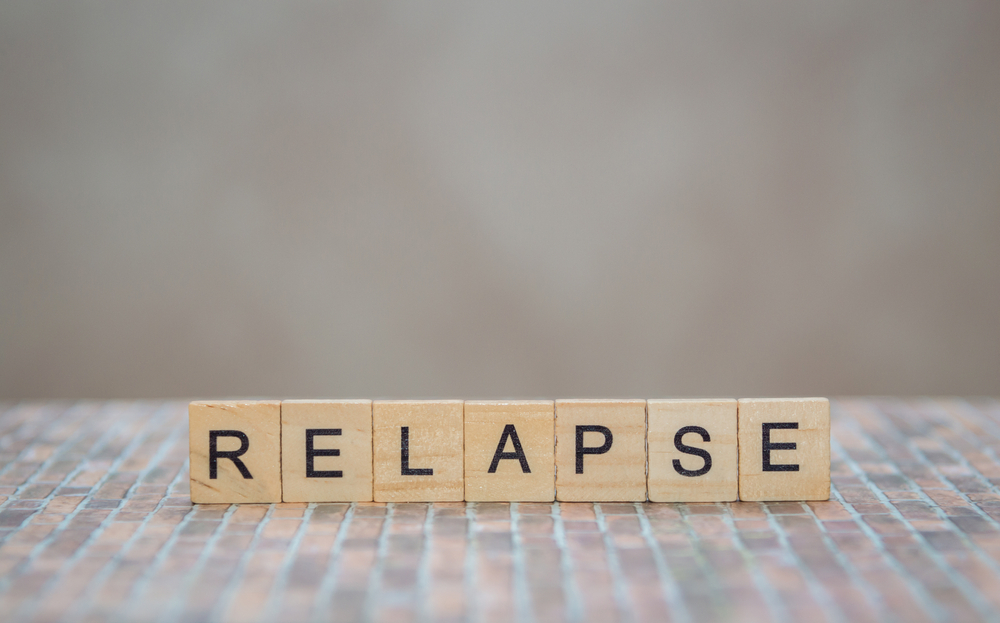Last Updated:
July 31st, 2025
What exactly is a relapse?
A relapse is when someone who’s been in recovery returns to using drugs or alcohol again. It doesn’t mean failure, and it doesn’t erase all the progress that’s been made, but it can feel incredibly disheartening. For many people, relapse brings on a flood of guilt, shame or fear that they’ve undone everything. But the truth is, recovery isn’t always a straight line.
Relapse often happens when underlying triggers, like stress, emotional pain, unresolved trauma or even moments of overconfidence, creep back in. It’s a sign that something needs more attention, not a reason to give up.
I relapsed in recovery – what caused it?
Relapse can be deeply personal. No two people will experience it in the same way, but certain themes commonly lead someone back to substance use. Understanding these can help you or your loved one stay more aware and better prepared.
Unmanaged stress
Stress is one of the most common causes of relapse. Without healthy coping mechanisms, people often fall back on substances to escape or dull emotional discomfort.
- Example: After being made redundant unexpectedly, someone begins drinking again at night to “take the edge off,” just like they used to during previous rough patches.
Triggers and environments
Places, people or situations linked to past substance use can reignite cravings, even years into recovery.
- Example: Attending a birthday party where everyone’s drinking reminds someone of their old habits, making them feel like they’re missing out and leading to the thought, “One drink won’t hurt.”
Mental health struggles
When underlying mental health issues go unaddressed, substances can become a way to self-medicate.
- Example: A person dealing with untreated depression begins using drugs again to feel some relief from the emotional numbness that’s crept back in.
Overconfidence or complacency
As recovery progresses, it’s common to feel like the problem is in the past. This can cause someone to stop doing what was keeping them well.
- Example: After months of sobriety, someone stops going to therapy and accepts a drink at a wedding, telling themselves it’s just for celebration.
Isolation
Human connection is essential in recovery. When it’s missing, the loneliness can become overwhelming and lead to relapse.
- Example: After moving to a new area with no support network, someone begins using again in the evenings, telling themselves it’s just until they settle in.
What are the relapse warning signs I should be aware of?
Sometimes, a relapse doesn’t announce itself loudly. Instead, it creeps in through small, almost invisible changes that are easy to brush off as nothing. These subtle shifts in mindset or behaviour can be early warning signs that something is off and recognising them early could make all the difference.
A quiet shift in your thinking
You might find yourself reminiscing about the past but not in a reflective way, more like longing for the ‘good parts’ of using. You might catch yourself downplaying how bad things really got or wondering if you were ever truly addicted at all. These thoughts often slip in quietly and can feel oddly comforting at first.
Pulling away emotionally
Even if you’re still going to meetings or therapy, you may notice you’re less open or honest than before. Maybe you’re saying what’s expected but not really connecting. Emotional distance like this can be a quiet sign that your inner world is drifting from your recovery.
Routine changes that don’t feel drastic
You might stop doing small, helpful things, like journaling, going for walks or calling someone when you’re feeling low. On the surface, it seems minor. But these are often the first things to go when a relapse is quietly building.
Resurfacing old habits or places
You may find yourself listening to the same music you used to when you were using, visiting certain neighbourhoods or scrolling old messages. It might seem like nostalgia but it’s worth paying attention to. Sometimes these subtle returns are your brain’s way of revisiting the past in preparation for slipping back into it.
A sense of restlessness or dissatisfaction
Everything might be going “fine,” but you still feel bored, numb or disconnected. You can’t quite explain it, but things feel off. This emotional discontentment is often a warning sign, especially if you’ve previously used substances to escape those exact feelings.
These signs can be easy to dismiss. But if you notice even one or two of them happening more often, it might be time to pause and check in with yourself or someone you trust.
Our compassionate team are ready and available to take your call, and guide you towards lasting the lasting addiction recovery you deserve.
Rebuilding your recovery plan after relapse
Despite your best efforts and relapse prevention strategies, setbacks can still happen. As disheartening as it may feel, a relapse doesn’t mean you’ve failed or that you’re beyond help. It’s painful to see the effort you and those in your recovery circle, have put in feel undermined but the focus now is to find the leak, patch it and keep moving forward.
Sometimes that leak may lie within the relapse prevention plan itself. That doesn’t mean it was ineffective. More often, it simply means you’ve outgrown parts of it.
For instance, maybe your plan once included attending weekly in-person meetings but your circumstances have changed and those meetings are no longer practical or as beneficial or perhaps life changes have played a major role. Maybe you got a promotion that requires longer hours. It sounds like progress but if it caused your online therapy sessions to take a back seat, then it’s easy to see what support may have been missing in the lead-up to your relapse.
In other cases, it might be the people around you who’ve changed. If your recovery plan relied heavily on the support of friends, family or a partner and those relationships have drifted or shifted, it could leave a small but crucial gap in your foundation.
So, what can you do? One of the most effective steps right now is to reconnect with your therapist, sponsor or anyone in a position to offer professional guidance. Go back through your prevention plan together and see what needs to evolve. A small adjustment might be all you need to reflect your current life better and give yourself the clarity to build forward again.
I’m struggling with sobriety, what can I do?
If you’re finding it difficult to stay sober, no matter where you are in your recovery journey, give Addiction Helper a call. Our team is here 24/7 to listen, guide and help you take the next step forward. Help is available, and we’re ready to take your call.
Our compassionate team are ready and available to take your call, and guide you towards lasting the lasting addiction recovery you deserve.



